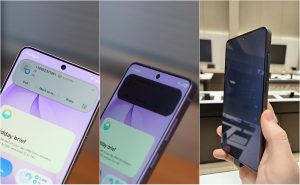ISLAMABAD – SARS-CoV-2, the virus responsible for Covid-19 can remain infectious on surfaces for long periods of time as researchers at Commonwealth Scientific and Industrial Research Organisation (CSIRO), Australia’s national science agency, have found that it can survive for up to 28 days on common surfaces including banknotes, glass such as that found on mobile phone screens, and stainless steel.
The research, undertaken at the Australian Centre for Disease Preparedness (ACDP) in Geelong, found that SARS-CoV-2 survived longer at lower temperatures and tended to survive longer on non-porous or smooth surfaces such as glass, stainless steel and vinyl, compared to porous complex surfaces such as cotton.
The study showed that the virus survived longer on paper banknotes than plastic banknotes, Medical Daily reported .
“While the precise role of surface transmission, the degree of surface contact and the amount of virus required for infection is yet to be determined, establishing how long this virus remains viable on surfaces is critical for developing risk mitigation strategies in high contact areas,” said one of the study authors Debbie Eagles, Deputy Director of ACDP.
“How long they can survive and remain infectious depends on the type of virus, quantity, the surface, environmental conditions and how it’s deposited – for example touch vs droplets emitted by coughing,” said Professor Trevor Drew, Director of ACDP.
The research involved drying virus in an artificial mucus on different surfaces, at concentrations similar to those reported in samples from infected patients and then re-isolating the virus over a month.
Further experiments were carried out at 30 and 40 degrees Celsius, with survival times decreasing as the temperature increased.
The study was also carried out in the dark, to remove the effect of UV light as research has demonstrated direct sunlight can rapidly inactivate the virus.
“Our results show that SARS-CoV-2 can remain infectious on surfaces for long periods of time, reinforcing the need for good practices such as regular handwashing and cleaning surfaces,” Eagles said.














